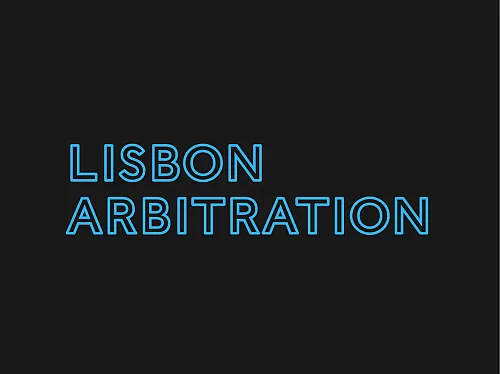10.09.2019
[Lisbon Arbitration] Hide and seek: when the failure to produce documents results in adverse inferences
It is widely accepted in the international arbitration community that arbitral tribunals may draw adverse inferences from a party’s failure to produce a document requested in the proceedings. As an example of that, the IBA Rules on the Taking of Evidence in International Arbitration (“IBA Rules”) specifically recognize this possibility in Article 9.5.
In this context, an adverse inference can be described as the presumption that an unproduced document is unfavourable to the interests of the party who failed to produce it. In other words, when a party fails to produce certain documents in the proceedings, the arbitral tribunal may infer that the contents of such documents would be adverse to that party’s case.
Because they are mere presumptions, adverse inferences do not categorize as direct evidence. Thus, they should be interpreted and weighted in the broader context of their consistency with the remainder evidence produced in the proceedings.
The drawing of adverse inferences is subject to certain requirements, which means that a party’s mere failure to produce a document must not, directly and of itself, allow an arbitral tribunal to draw a negative inference. These requirements aim, notably, at ensuring the compliance with due process demands and the consistency of the inference sought with the various means of evidence produced in the proceedings.
The requirements have been continuously categorized and developed by arbitration practitioners and scholars and some of them can be extracted from the IBA Rules. We address hereunder some of those requirements1:
1. The requested party must have been given the chance to object to the document production. Due process requires that the requested party is given the opportunity to object to the production of the requested document, notably by resorting to one of the objections provided for under Article 9.2 of the IBA Rules;
2. The requested party must either not have objected to a request to produce or have been ordered by the arbitral tribunal to produce a document. The drawing of an adverse inference is only legitimate when the requested party did not present any justified reason not to produce the requested document, or when the arbitral tribunal, after weighting the arguments presented by both parties, decided that the party should produce the requested document;
3. The requested document should be relevant to the case and material to its outcome. Otherwise, the document production request should not even be admitted by the arbitral tribunal, as results from Article 3.3 (b) of the IBA Rules;
4. The requested document should not be in the possession, custody or control of the requesting party, and, on the contrary, it should presumably be in the possession, custody or control of the requested party. As provided for under Article 3.3 (c) of the IBA Rules, (i) the requesting party should assert that it is not in a position to produce the document, otherwise it would be illegitimate to request it from the opposing party, and (ii) the requesting party should also demonstrate why it is reasonable to assume that the requested document is under the control of the opposing party, otherwise it would be unfair to punish the requested party with the drawing of an adverse inference;
5. There must be a reasonable degree of certainty about the contents of the requested document. The requesting party must produce evidence that reasonably allows one to deduce the presumable content of the missing document, since that presumable content is the basis for the drawing of the inference;
6. The inference sought must be clearly identified. The requesting party should clearly state the inference that should be drawn from the other party’s failure to produce the relevant document;
7. The potential details of the document must not be essential. Since, in principle, it is not possible to reasonably presume the details of an unproduced document, the possible inference will, in most cases, only refer to the broader contents of the unproduced document.
8. The requesting party must provide prima facie additional evidence. Since the adverse inferences are mere presumptions, the requesting party must provide all reasonably available evidence that is consistent with and corroborates the inference sought.
This list of requirements is obviously not exhaustive and, in every particular case, the tribunal may find that other prior conditions must be met before drawing an adverse inference.
In any case, even when the tribunal finds that the requirements for the drawing of an adverse inference are met, it must still have extreme caution in the formulation of the inference to ensure that it is “reasonable, consistent with facts in the record and logically related to the probable nature of the evidence withheld”2. All in all, the arbitral tribunal should exercise its power to draw adverse inferences on a case-by-case basis, even if relying on general guidelines, and apply it with caution and reasonably.
Practice shows that parties often request arbitral tribunals to draw negative inferences and elaborate a lot on the conditions for drawing those inferences and on the reasons why those conditions are met in the particular case. However, arbitral tribunals have been reluctant to exercise that power, at least explicitly, and tend to do it only in exceptional circumstances.
_______________________
1 See J. K. Sharpe, “Drawing adverse inferences from Non-Production of Evidence”, Arbitration International, Vol. 22, No. 4, 2006; Vera van Houtte, “Adverse inferences in International Arbitration”, Written Evidence and Discovery in International Arbitration: New Issues and Tendencies, Dossiers of the ICC Institute of World Business Law, Dossier VI, 2009; Simon Greenberg and Felix Lautenschlager, “Adverse Inferences in International Arbitral Practice”, ICC International Court of Arbitration Bulletin, Vol. 22, No. 2, 2011.
2 See J. K. Sharpe, “Drawing adverse inferences from Non-Production of Evidence”, Arbitration International, Vol. 22, No. 4, 2006.
[Text originally published on Lisbon Arbitration, an arbitration blog by Morais Leitão].
